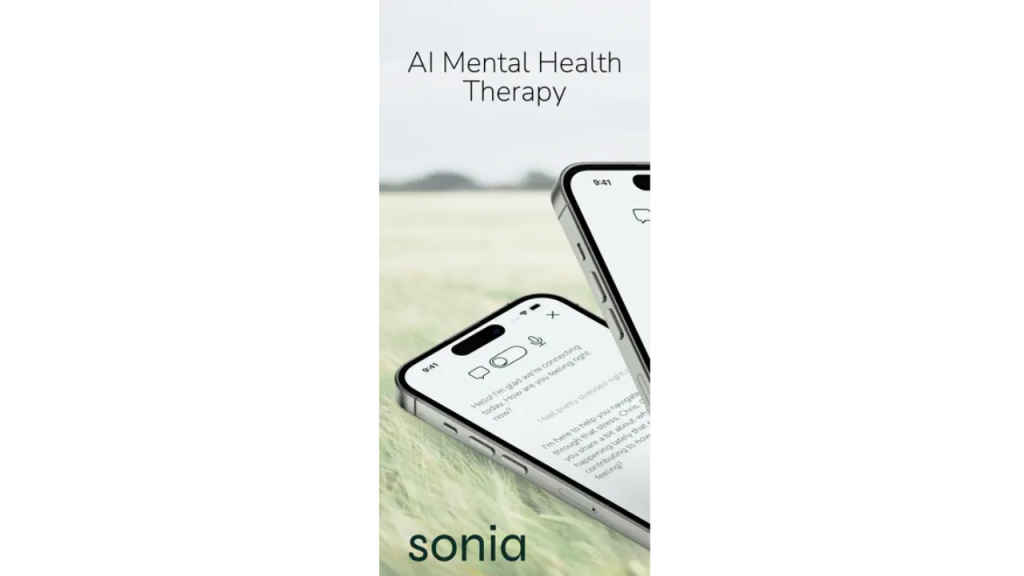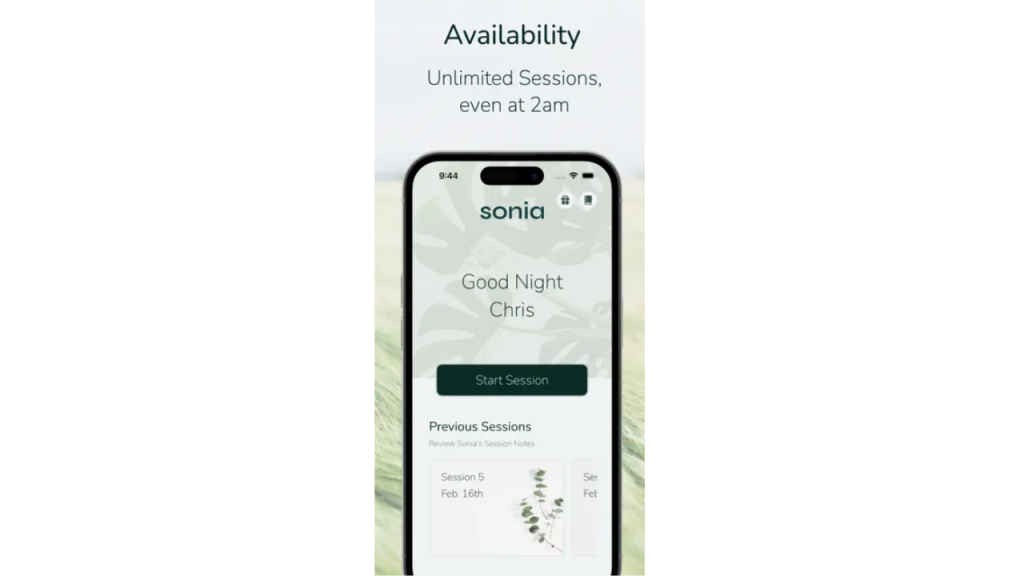This AI chatbot launched as alternative to traditional therapy
Startup Sonia has launched an AI chatbot designed to offer a convenient and accessible alternative to traditional therapy.
Sonia leverages multiple generative AI models to analyse what users say during “therapy sessions” in the app and respond accordingly.
Sonia, which has not yet received FDA approval, is designed to address a range of issues including depression, stress, anxiety, relationship problems, and poor sleep.

In a world increasingly driven by technology, the intersection of artificial intelligence and health care is creating groundbreaking solutions for those seeking support. Now, a startup Sonia has launched an AI chatbot designed to offer a convenient and accessible alternative to traditional therapy.
 Survey
SurveyLet’s take a look at the details.
Also read: Researchers create AI chatbot that lets you talk to your future self: Here’s how it works

One study indicated that 80% of individuals who utilised OpenAI’s ChatGPT for mental health guidance consider it a good alternative to traditional therapy. Concurrently, another report highlighted that chatbots can effectively reduce specific symptoms associated with depression and anxiety. However, it is widely acknowledged that the therapeutic alliance between therapist and client—the human connection—is a critical factor in determining the success of mental health treatment.
Also read: AI Showdown: Meta AI vs ChatGPT vs Google Gemini- Who Wins?

Three entrepreneurs — Dustin Klebe, Lukas Wolf and Chris Aeberli — who are in the pro-chatbot therapy camp have founded Sonia. Their startup offers an “AI therapist” accessible through an iOS app.
“To some extent, building an AI therapist is like developing a drug, in the sense that we are building a new technology as opposed to repackaging an existing one,” Klebe, Sonia’s CEO, told TechCrunch in an interview.
Sonia leverages multiple generative AI models to analyse what users say during “therapy sessions” in the app and respond accordingly.
Dustin Klebe claims that Sonia, which has not yet received FDA approval, is designed to address a range of issues including depression, stress, anxiety, relationship problems, and poor sleep. For more serious situations such as individuals contemplating violence or suicide, Sonia incorporates “additional algorithms and models” to detect “emergency situations” and direct users to national hotlines, Klebe says.
Surprisingly, none of Sonia’s founders have backgrounds in psychology. However, Klebe said that the startup consults with psychologists, has recently onboarded a cognitive psychology graduate, and is actively seeking to hire a full-time clinical psychologist.
“For every response that Sonia generates, there are about seven additional language model calls happening in the background to analyse the situation from several different therapeutic perspectives in order to adjust, optimise and personalise the therapeutical approach chosen by Sonia,” Klebe explained.
As far as the privacy is concerned, Klebe asserts that Sonia is dedicated to storing only essential personal information—namely, a user’s age and name—to facilitate therapy. However, he did not specify details regarding where, how, or for how long Sonia retains conversation data.
Ayushi Jain
Ayushi works as Chief Copy Editor at Digit, covering everything from breaking tech news to in-depth smartphone reviews. Prior to Digit, she was part of the editorial team at IANS. View Full Profile